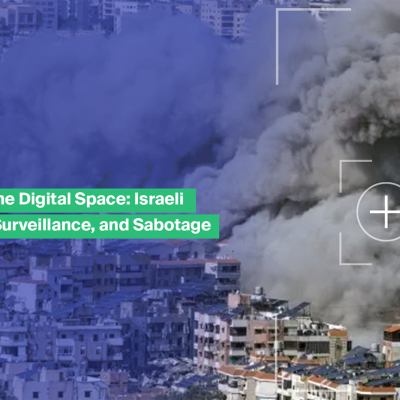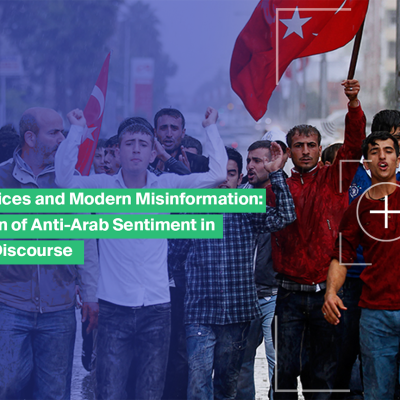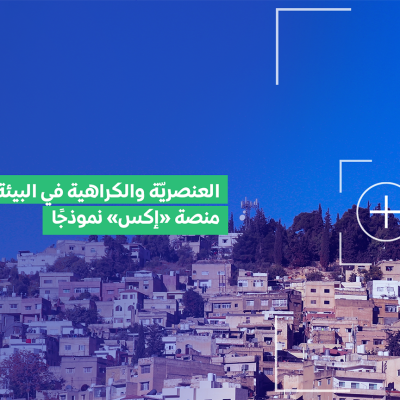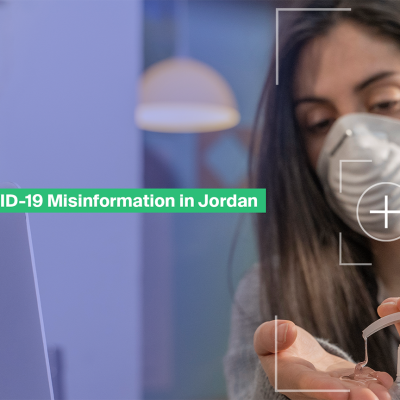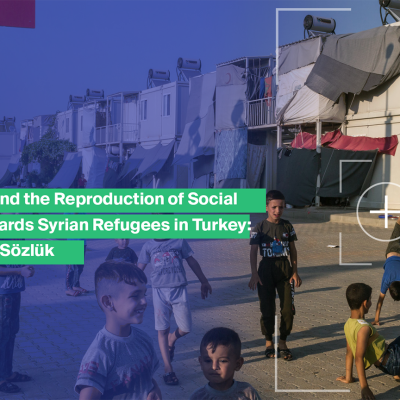Mostafa Al-A’sar is a former Nonresident Fellow at TIMEP focusing on press freedom and media in Egypt.
How Misinformation Fuels Hate Against Refugees in Egypt
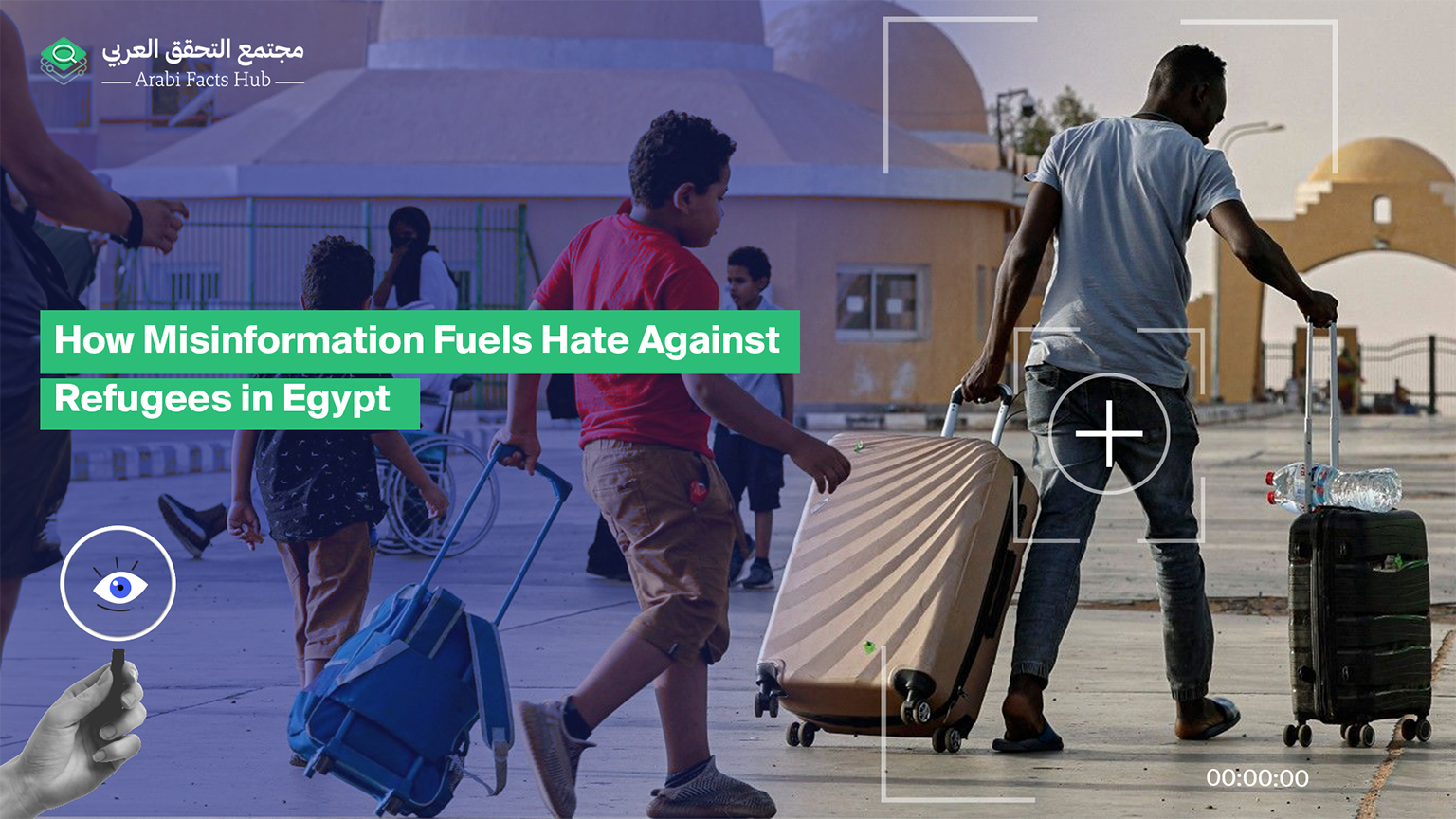
As Egypt faces rough economic conditions that have severely harmed the standard of living for its citizens, the country’s government has shifted part of the blame onto refugees. Officials and regime-aligned media figures have spread misinformation exaggerating the number of refugees the country hosts, while claiming that their presence burdens the state with service costs amounting to billions of dollars.
President Abdel Fattah El Sisi has repeatedly stated that Egypt has hosted 9 million refugees, a claim that contradicts the facts. Egypt officially hosts around 800,000 registered refugees and asylum seekers from 62 different nationalities, most of whom are from Sudan and Syria, according to the UNHCR. Refugees registered with the UNHCR receive financial allowances, food, and health and education services. The 9 million figure refers to all foreigners in Egypt, including those who have been living in the country for decades. One International Organization for Migration (IOM) study from 2022 estimates about 37 percent of these foreigners work in “stable jobs and businesses […] positively contributing to [Egypt’s] labor market and economic growth.”
Amid the spike in anti-refugee rhetoric, and Europe’s efforts to curb refugee arrivals at its shores, the Egyptian parliament passed in November a new asylum law that critics say could severely harm refugee rights.
Tight media control
In a country where the government exerts tight control over the media, official narratives about refugees go unchallenged and are oftentimes exacerbated by mainstream media and media personalities. Under Sisi’s rule, authorities have targeted journalists, news websites, independent newspapers, and television channels. In May 2016, the government established the United Media Services Company (UMSC) under the Egyptian General Intelligence Service, which went on to acquire most television networks, print media outlets, film production companies, and advertising firms. This control helps the Egyptian authorities monopolize public discourse and shape public opinion, as has been the case with the narrative on refugees.
At the start of 2024, pro-government media personality Ahmed Moussa launched a campaign against refugees on the Egyptian channel Sada El Balad. Without providing any evidence, he claimed that the Egyptian state budget was being burdened by the cost of hosting refugees and that the country was not receiving international aid. However, Moussa failed to mention the multi-million dollar support deals with the European Union that Egypt was negotiating at the time, and signed a few months later, which aimed at managing irregular migration and boosting Egypt’s economy.
What followed was an almost synchronized campaign where media figures began addressing the refugee issue at the same time on television channels, all owned by the UMSC or heavily allied to the government, or both.
By mid-May 2024, other media figures joined this campaign, such as Khairy Ramadan on Al Mehwar channel, who described the issue of refugees as a “growing problem” that Egypt is facing. Similarly, Qaswaa Al Khalali on her show on CBC on May 5 pushed this narrative, stating that “Egyptians were increasingly unhappy with the issue of refugees,” claiming that “they were turning into a burden on the country.” She then said that refugees receive subsidized services from the state, a statement that is only partially accurate; foreigners pay the same price for some subsidized goods, such as water and electricity but not food, yet they are charged significantly higher rates for other services, such as public schools and universities.
Ibrahim Eissa, a prominent commentator and host on the channel Al Qahera Wal Nas, which is not owned by UMSC, claimed on May 6 that “there is an undeniable sense of discomfort among Egyptians with the growing presence of Arab refugees,” describing it as “a phenomenon no longer subject to debate but rather one that has become a source of anger, protest, and questioning.”
Calls for deportation
Simultaneously, coordinated campaigns emerged on social media calling for the deportation of refugees and spreading hate speech and inciting violence against them.
On July 14, the Faisal area west of greater Cairo, where many Sudanese nationals reside, became the center of attention in mainstream and social media after a billboard displayed images mocking President Sisi. Simultaneously, several accounts on X (formerly Twitter) accused Sudanese residents of the area of being behind the billboard. It was easier to pin the blame on refugees by promoting the idea that such actions were not the result of pent-up public anger against the president but rather offensive acts by refugees.
This incident came just days after the launch of social media campaigns against refugees. However, this time, the Egyptian Ministry of Interior denied the rumor, stating that no Sudanese individuals were arrested for committing “offensive acts.”
Such campaigns are rarely organic. A recent report by the independent fact-checking platform Saheeh Masr revealed that pro-government electronic accounts had launched incitement campaigns targeting refugees fleeing war, promoting extremist nationalist rhetoric. The report was based on monitoring and analysis of anti-Syrian and anti-Sudanese hashtags on X between June 21 and June 29, 2024, when these accounts were most active. These campaigns called for the deportation of refugees or boycott of their businesses.
Saheeh Masr concluded that these campaigns were not spontaneous but rather coordinated and driven by specific accounts—some of which were real and managed by people who are in charge of these campaigns, while others were fake accounts created to amplify interaction and retweets. The analysis highlighted the top three hashtags: #ارجع_يازول_سودانك (Go back to your Sudan), #ترحيل_السوريين_واجب_وطني (deporting Syrians is a national duty) and مقاطعة_محلات_السوريين# (Boycott Syrian shops). Saheeh Masr also noted organized efforts to increase the hashtags’ visibility, with retweets on such posts outnumbering those of the original posts themselves.
Nour Khalil, a migration and refugee policy researcher and the Executive Director of the Refugees Platform in Egypt (RPE) explained that digital spaces are an integral part of reality and cannot be separated from it. The RPE platform receives numerous reports, mostly posted by refugees, of online hate speech and threats, Khalil said, explaining that most of these threats come from accounts linked to nationalist or racist groups, as well as pro-government electronic accounts.
A systemic problem with real-life consequences
The coordinated online campaigns and misinformation spread by government-controlled media are not isolated incidents but rather align with the Egyptian government’s own policies.
Khalil says that this stems from the government’s official anti-migrant rhetoric, which began around 2011 in the aftermath of the Egyptian revolution. In recent years, there has been an increase in anti-refugee sentiment, leading to legal and legislative restrictions that are often foreshadowed by online campaigns targeting refugees. In 2022, the Egyptian parliament approved amendments to some provisions of Law 82 of 2016 on combating irregular migration and human trafficking, increasing penalties for smuggling migrants. The culmination of these efforts was the passing of the asylum law in parliament on November 19, the first of its kind in Egypt.
Khalil explained to TIMEP that Egyptian legislation in the country does not guarantee the right to a fair trial in migration cases; instead, it emphasizes harsher punishments without considering the interests and rights of asylum seekers. Egypt has also forcibly deported thousands of Sudanese refugees fleeing the horrors of war, with UNHCR estimates suggesting that 3,000 people were deported from Egypt back to Sudan in September 2023 and 800 people between January and March 2024.
A Syrian journalist, currently living in Giza after fleeing home following the Syrian revolution, told TIMEP that, while he has not witnessed or experienced any racist incidents against Syrians in person, the real issue is the increasing restrictions imposed by the Egyptian government on Syrians living in the country. Particularly, authorities are no longer renewing the tourist residence visas, which allowed Syrians to stay for six months legally in Egypt. As a result, many have turned to the UNHCR to apply for asylum, but due to the large number of applicants, securing an appointment can take a year or more.
In a context where refugees lack legal protection, the disinformation and hate speech targeting them only further risk exacerbating their marginalization. In addition to legal hurdles, deportation, and imprisonment, the risk of violence is real. The danger of this lies in mobilizing citizens against foreign residents by spreading false claims that refugees are responsible for rising prices and the increasing cost of living. This was, for example, the case in Lebanon, where Syrian refugees were targeted after online campaigns against them and calls for their deportation back to Syria. As a result, Syrians became targets of both the Lebanese government and certain segments of Lebanese society, who harassed, threatened, and sometimes assaulted them in the streets, holding them responsible for the Lebanese state’s failures and its economic collapse. Similarly, in Tunisia, black African migrant asylum seekers became the target of violent campaigns following racist narratives spread by the president himself.
Having lived in Egypt her entire life, a Sudanese woman has described the online incitement campaigns and hate speech as “empty noise.” She told TIMEP that reality is quite different from what is portrayed on social media, based on her experiences as a resident of an underprivileged neighborhood in Cairo: “People treat the Sudanese kindly and are sympathetic to their circumstances.”
She expressed concern, however, that the growing hate speech on social media might eventually spill over into real life, especially among younger age groups who are more easily influenced. If tensions were to escalate to such a level, she has the faith that the majority of the Egyptian population would take the side of refugees and defend them.
Escalating risks
By exaggerating refugee numbers and depicting them as a financial burden, the Egyptian government is attempting to foster an atmosphere of hostility that aligns with its increasingly restrictive policies, such as the recent asylum law. These narratives, amplified by pro-government media and coordinated social media campaigns, serve to justify harsher measures against refugees while diverting public attention from Egypt’s systemic economic issues and governance failures.
President Sisi, who must still ratify the asylum law, has the opportunity to reject it and return it to parliament for further consultations, potentially allowing for revisions that protect refugee rights and align with international obligations.
This anti-refugee environment not only endangers refugees by heightening their risk of marginalization, deportation, and violence but also undermines social cohesion. While many Egyptians continue to show empathy and solidarity with refugees, the rise of hate speech, particularly online, poses a real threat of influencing public attitudes, especially among younger generations. To prevent further harm, it is crucial to challenge disinformation, uphold legal protections for refugees, and encourage a national dialogue that highlights their contributions and shared humanity.
